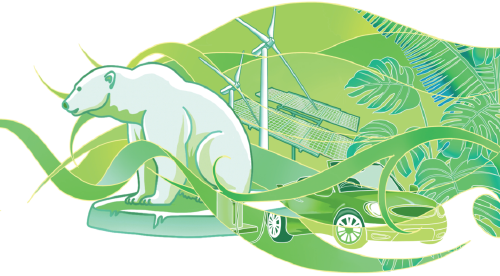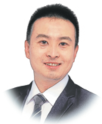Ethics is embedded in China's climate health adaptation strategies

JIN DING/CHINA DAILY
June 18, 2024 -- Embedding ethics into climate health adaptation is essential to ensure that actions benefit and do not compromise future generations. However, it is unclear how we can create a fair and equitable system today. Climate change policy should fundamentally incorporate ethics at the core.
Climate change affects many places in different capacities, and it is unequivocal that the poorest and those with the least resources are the most vulnerable and hit the hardest. Most developed countries, communities, and individuals have a greater capacity to mitigate and adapt because of financial resources, bargaining power and information access. This raises questions about fair distribution of burdens and benefits.
A rights-based approach based on universality and inalienability underscores that climate change threatens fundamental human rights, including the rights to life, health and a safe environment. For instance, climate-induced extreme weather events make some places uninhabitable, displacing communities and creating climate migrants, thereby jeopardizing the rights of many through a spillover effect. Renewable energy projects must consider the local communities to ensure fair and equitable land use, incorporating mechanisms for meaningful participation of vulnerable communities, and aligning policies with international agreements such as the Paris Agreement.
Multilateral intergovernmental agencies created financial mechanisms, such as the Loss and Damage Fund, Green Climate Fund, and Adaptation Fund, which are pivotal in climate health adaptation. These mechanisms, along with processes like Global Stocktaking, are instrumental in building climate change health adaptation capacities. Achieving equity in these mechanisms should apply the "veil of ignorance", a concept introduced by philosopher John Rawls. This concept suggests that designing fair and impartial principles of justice should be done from an original position of equality, where individuals, or policy decision-makers, lack knowledge of their own status, abilities, preferences, and circumstances. Decision-makers can suppose they do not know their own circumstances for climate health funds — whether they represent a wealthy country with advanced healthcare or a poor country vulnerable to climate change. Only with the decision-maker behind a "veil of ignorance", can they be compelled to develop systems that protect the most vulnerable and distribute resources equitably.
While the "veil of ignorance "approach promotes fairness and equity in resource distribution, the immediacy and urgency of decision-making during climate disasters may necessitate a shift toward a utilitarian framework — evaluating actions that aim for the greatest good for the greatest number of people — often instantaneous and without time for thorough consideration. However, utilitarianism can oversimplify decision-making by focusing solely on immediate outcomes, neglecting long-term consequences, and overlooking the revealed preferences of groups and individuals. By integrating the fairness principles of the "veil of ignorance" with the practical efficiency of utilitarianism, policymakers can develop a more balanced and just framework for climate disaster response. This approach ensures immediate needs are met while also considering long-term recovery and resilience-building efforts, ultimately preventing future vulnerabilities.
China's collectivism that values group goals over individual ones ensures order, and a sense of community and mutual support. In the context of climate change adaptation, this principle lets collective efforts build resilience and protect vulnerable populations. Collectivism facilitates the pooling of resources and the sharing of knowledge, both of which are essential for effective climate adaptation. China's strong emphasis on order and hierarchical structure enables the efficient implementation of climate adaptation policies. The centralized governance model allows for coordinated action, ensuring that strategies are systematically and effectively executed. However, it is also important to consider potential challenges, such as ensuring that the voices of all community members are heard and that local contexts are adequately addressed in the centralized approach.
The role of local context in effective climate health adaptation cannot be overstated. Implementing a centralized strategy across a vast and diverse country such as China is always challenging. Local climate health adaptation that allows for flexibility is crucial for addressing specific regional risk factors, and this is where local culture plays a vital role in embedding ethics into climate change adaptation by providing valuable knowledge, fostering community engagement, ensuring cultural appropriateness, promoting inclusive governance, and enhancing social cohesion.
China's long history is a testament to its resilience against climate risks, offering experiences from the past for today's climate discourse. From the raging Yellow River floods that were tamed by the legendary hero Da Yu, to the droughts during the Han Dynasty (206 BC-AD 220), to the droughts and famines during the Tang Dynasty (618-907), to the Little Ice Age (14th-19th centuries), and to the Yangtze River floods in 1931, China's civilization has weathered it all. In the 21st century, modern climate change is ramping up the frequency and intensity of extreme weather — heat waves, typhoons, heavy rainfall, wildfire — posing significant challenges to both urban and rural areas.
Today, China tackles these modern climate risks with eco-civilization principles and technological innovations to safeguard public health gains. The key to moving forward is embedding ethics, applying cultural specificity, and fostering global cohesion — a blueprint for resilience.

The author is an associate professor at Tsinghua University Vanke School of Public Health. The author contributed this article to China Watch, a think tank powered by China Daily.


